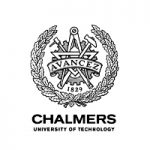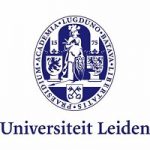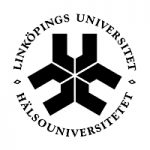项目介绍
About the course
The sub-department’s research focuses on the study of physical processes in the atmospheres, surfaces and oceans of the Earth and other planets, using experimental, computational and theoretical techniques. Admission is highly competitive and is either directly to this course or via the physical climate system stream of the Environmental Research NERC Doctoral Training Partnership.
How does the Earth’s climate evolve? How do we connect measurements made from space and the ground to the future direction of the Earth’s climate? What can we learn from observations of other planets to tell us more about the Earth and the evolution of the Solar System? These are the types of research problems members of the Atmospheric, Oceanic and Planetary Physics (AOPP) sub-department of the Department of Physics are engaged in.
The structure of the taught course components and initial (first year) assessment for a DPhil in AOPP is determined by the method of entry onto the course:
- if you wish to enter via the Oxford Environmental Research NERC Doctoral Training Partnership, your initial training will be within the DTP, before transferring to AOPP usually at the beginning of the second term of your first year; or
- if you applying directly to AOPP, typically for projects in the area of planetary physics or a specifically-funded research project, courses will be provided either in collaboration with the DTP in Environmental Research or via lectures given as part of fourth year major option in the University’s undergraduate degree in physics, Physics of atmospheres and oceans.
Supervision
For this course, the allocation of graduate supervision is the responsibility of the Department of Physics and it is not always possible to accommodate the preferences of incoming graduate students to work with a particular member of staff. Under exceptional circumstances a supervisor may be found outside the Department of Physics.
You are allocated at least one supervisor who should be your primary contact for guidance throughout your research degree. Research students join an existing research group that typically comprises at least one lead academic plus postdoctoral research assistants or fellows and other research students. Research projects in AOPP can be highly interdisciplinary and students often have additional co-supervisors either within AOPP or another University department.
The frequency of student supervisor meetings varies depending on the nature of the project. You are welcome to contact potential supervisors for further information.
Assessment
If admitted directly to AOPP, you will be assessed via the successful completion of classes and a first year transfer report of around 10,000 words, submitted during the summer of your first year. For the DTP, please see Environmental Research (NERC Doctoral Training Partnership).
You are admitted as a probationary DPhil student, and transfer from a probationary status is dependent on successful completion of the taught component of the course and assessment of your first year report by at least two academics that are not directly connected to your project. A further second year report, also assessed, is required before status as a DPhil candidate is confirmed and your thesis can be submitted.
Graduate destinations
Graduates from the programme have gone on to positions within academia, industry and government. Examples of organisations recent graduates have found employment have included NASA, the European Space Agency, Airbus Space and Defence and university departments across the world.
Support for career development is provided via the University’s Careers Service, events organised by the Department of Physics for graduate students and locally within AOPP. A regularly-maintained internal website lists upcoming opportunities and possible future destinations.
Changes to this course and your supervision
The University will seek to deliver this course in accordance with the description set out in this course page. However, there may be situations in which it is desirable or necessary for the University to make changes in course provision, either before or after registration. The safety of students, staff and visitors is paramount and major changes to delivery or services may have to be made in circumstances of a pandemic (including Covid-19), epidemic or local health emergency. In addition, in certain circumstances, for example due to visa difficulties or because the health needs of students cannot be met, it may be necessary to make adjustments to course requirements for international study.
Where possible your academic supervisor will not change for the duration of your course. However, it may be necessary to assign a new academic supervisor during the course of study or before registration for reasons which might include illness, sabbatical leave, parental leave or change in employment.
For further information please see our page on changes to courses and the provisions of the student contract regarding changes to courses.
录取要求
-
a first-class or strong upper second-class undergraduate degree with honours in physics, mathematics or related subjects. The equivalent of a UK four-year integrated MPhys or MSci degree is typically required. Bachelor’s degrees with a minimum four years’ standard duration may satisfy the entry requirements.
-
Entrance is very competitive and most successful applicants have a first-class degree or the equivalent. In exceptional cases, the requirement for a first-class or strong upper-second class undergraduate degree with honours can be alternatively demonstrated by a graduate master’s degree or substantial directly-related professional or research experience.
联系方式
电话: +44 1865 270000相关项目推荐
KD博士实时收录全球顶尖院校的博士项目,总有一个项目等着你!






